- August 1, 2018
- Posted by: SportsV
- Categories: Case Studies, Features, Home News, Industry News, News, Press Releases
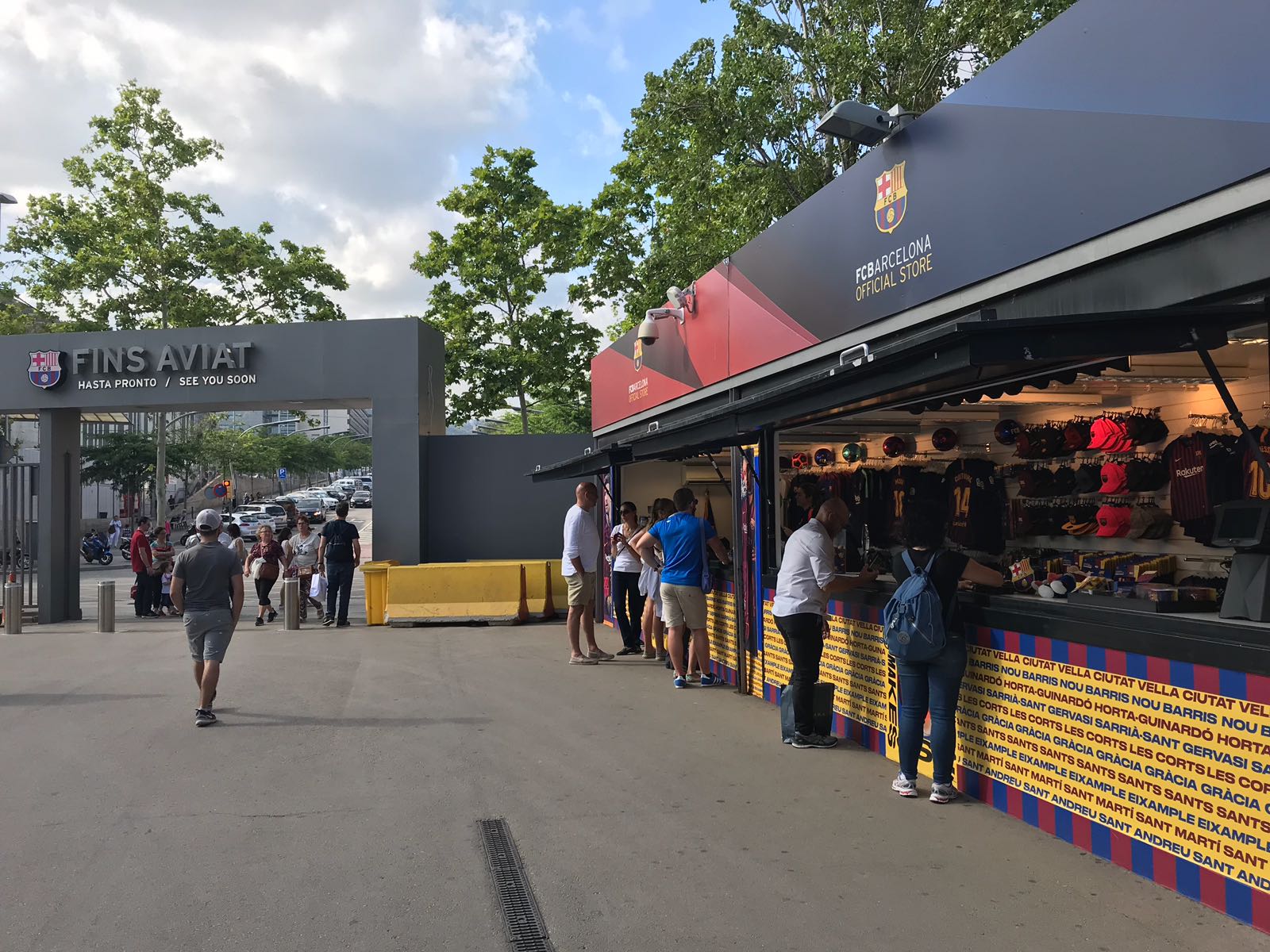
Nick Daffern, MD of Rapid Retail, discusses why sports clubs big and small are striving for a brand identity, fan engagement and to become a ‘destination’.
The sports industry is thriving, with KPMG estimating that the entire global sports market is now worth between US$600-700bn per year. Its growth is in part being driven by advances in technology, but as new innovations continue to evolve, so too does competition for spectator time and money.
To succeed in the modern landscape, teams not only need to be performing well on the pitch, but off it too. Achieving strong attendances and a healthy bottom line remains a key challenge and what used to be ‘nice-to-haves’ – or on the wish-list for the future – are now ‘must-haves’.
So, it’s no surprise that the clubs we speak to have the following three issues on their radar:
- Fan engagement
- Brand identity
- Becoming a ‘destination’
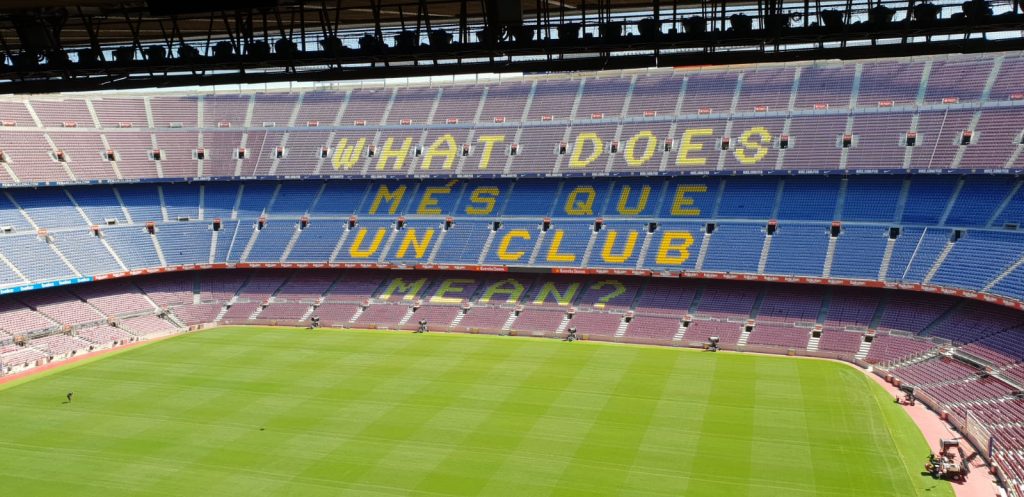
Brand identity
Like any other business, sports clubs have a target audience they want to reach and engage with. This is where brand identity comes in and why it is so important for clubs looking to take their performance up a gear.
Promoting a club begins with having a clear brand identity – that means knowing what the club is about, what it stands for and what defines it. The club needs to live and breathe this identity, communicating and reaffirming it for the target audience, with every interaction.
A brand identity is what can set a club apart, and give fans something to stand behind and believe in. It is about far more than having a team name, colour or logo – it’s what they represent for fans.
You want to reach a place where fans have a sense of ‘ownership’ of the club. And good luck to anyone who then tries to make changes (such as a new owner), who will usually crash and burn.
The world’s biggest clubs, including Manchester United, Real Madrid and FC Barcelona, have excelled in this area, setting the bar high. They are now global brands, with Man U topping the rankings, with an estimated brand value of US$1.733m in 2017.
For clubs who aspire to follow in their footsteps, defining a clear brand identity is a core part of the process.
Fan engagement
Unlike almost any other brand on the planet, a football club has the potential to nurture lifelong loyalty. This loyalty can remain strong – no matter what happens on the pitch – and will often be passed on to others, helping to breed the next generation of supporters.
But what clubs need to build this loyalty is fan engagement – and that’s no simple matter. The ongoing support of fans can no longer be assumed or relied upon, it takes a lot of work to maintain it.
Fan engagement comes down to how clubs make their fans feel. For example, do they feel they belong to something? What is the the overall experience they receive like? Are all communications interesting and relevant? Is interaction and participation being encouraged?
Taking inspiration from research by Deloitte, here are some key areas to work on to drive fan engagement:
- Knowing and understanding the target audience and designing effective engagement programmes specifically for them
- Working on engagement year-round
- Personalising the experience being provided
- Thinking holistically about the fan experience as a whole and spotting opportunities to enhance it
- Recognising loyalty
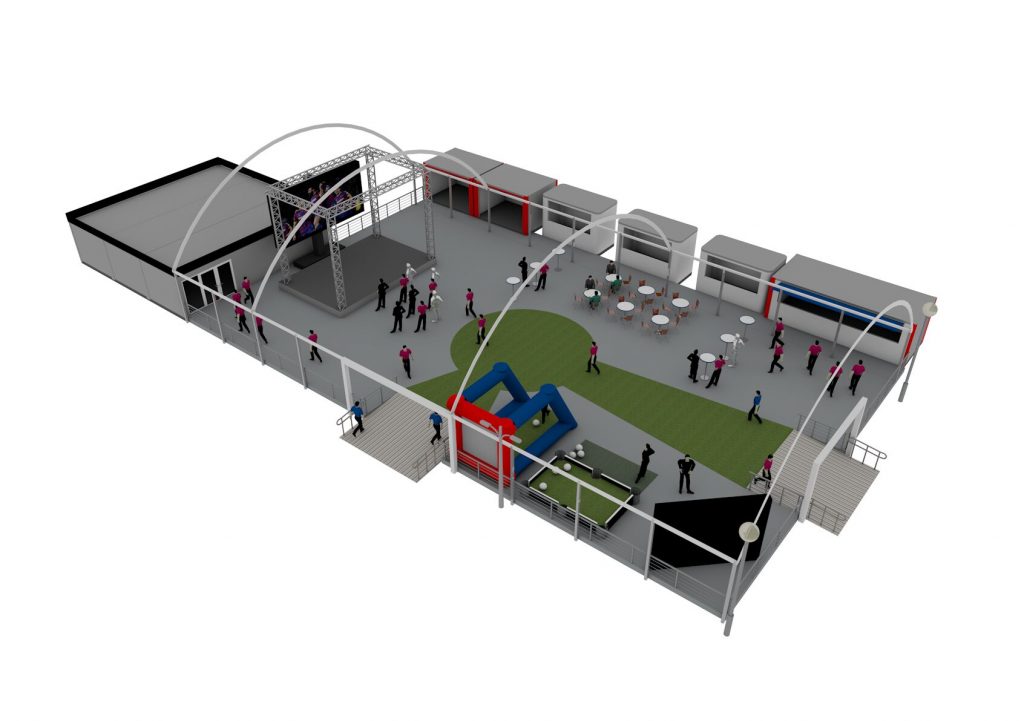
A ‘destination’
Clubs like Barcelona are again leading the way when it comes to positioning their stadium as a ‘destination’ – and not just on matchdays. When I recently visited the ground for a meeting with the retail team, the stadium was as busy on that mid-week afternoon as any other day.
The concept of a stadium as a destination is driving some new thinking when it comes to the facilities and experiences being offered, and when they are available.
One way clubs are working on this is the introduction of fan zones. It is a trend being witnessed across the UK and Europe, and something we are regularly being approached about.
A fan zone – or fan village as they’re sometimes called – will typically be created in an external area of the ground, using pop up shops, kiosks and other portable structures. Common features will include a stage area, big screens, eateries, shopping and family areas.
These dedicated spectator areas will usually open for a few hours both before and after a match, offering an environment in which visitors can gather.
One of the major benefits of a fan zone is that it can help encourage a positive atmosphere, while prolonging the time fans are on site – both elements that can be of benefit for growing matchday revenue and nurturing fan engagement.
Fan zones can help make the stadium a ‘destination’, by making use of the live match as the focal point of a wider experience.
Not just something for the top clubs
While the big clubs continue to be trailblazers in this area, creating increasingly sophisticated fan experiences that are backed by the latest technologies, it is something that clubs at all levels can aspire to.
The good news is it doesn’t take huge budgets and acres of space to make an impact, and in many smaller clubs may already command very strong fan engagement. The challenge will be in maintaining that community feel and loyalty, as you grow.
A great first step is to make the most of what you’ve got. Ensure you are making the optimal use of any space you have available, to maximise revenue and enhance the fan experience.
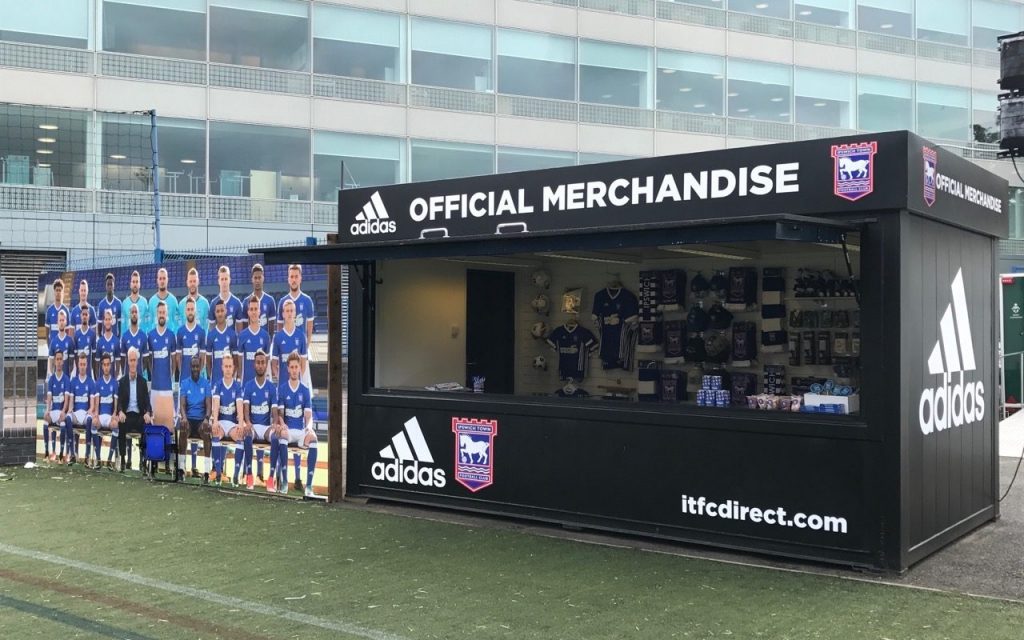
Rapid Retail has put together a free 12-page guide for sports clubs, offering advice on how to create a fan zone. For more information, visit: https://rapidretail.co.uk/how-to-create-a-fan-zone-a-complete-guide-for-sports-clubs/
Many thanks to Rapid Retail’s Nick Daffern for this insightful case study.
Images, courtesy: Rapid Retail

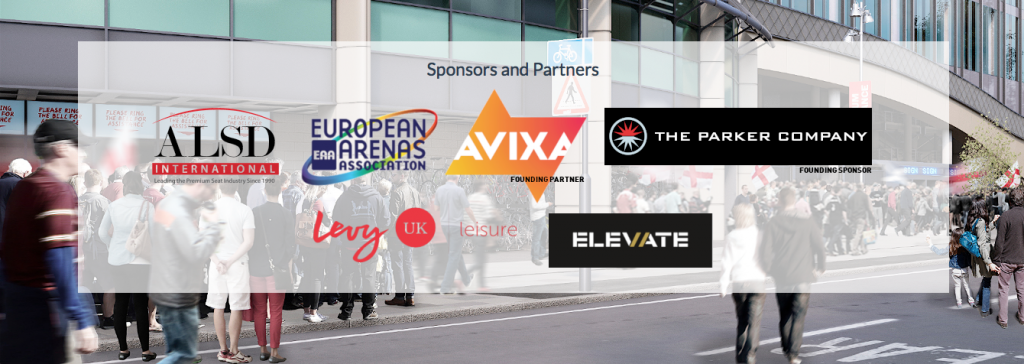
Manchester United, Real Madrid, Real Betis Balompié, Valencia CF, Bristol Sport, Arsenal and the San Francisco 49ers, as well as entities such as Red Bull Racing, The O2 – London, Levy Restaurants, The Sports Consultancy and AFL Architects will all be in attendance at Europe’s first Premium Seat event, ALSD International, being held in London this October, 11 and 12. Make sure to reserve your place TODAY by simply clicking on the banner below!
Sports Venue Business (SVB) is proud to be an Official Media Partner for ALSD International, with our CEO, Katie McIntyre, Executive Director
#ALSDInternational – Europe’s first Premium Seat event


